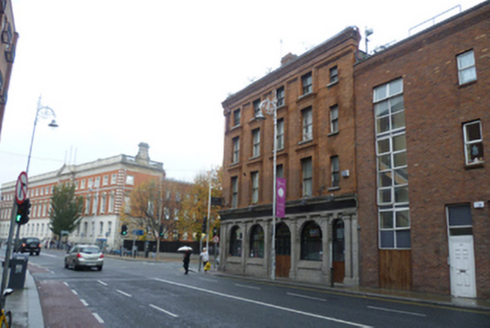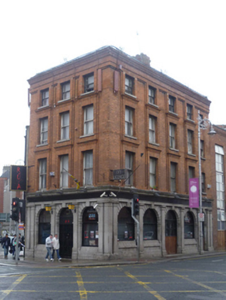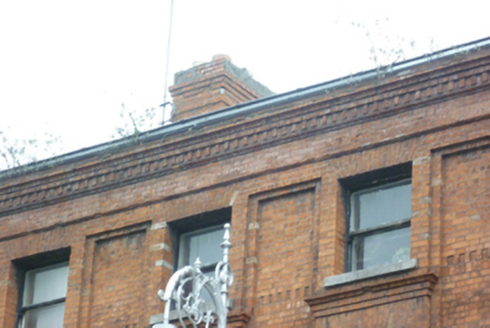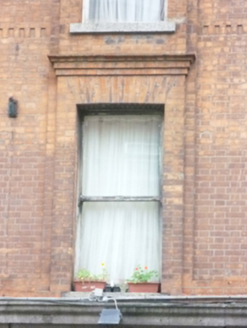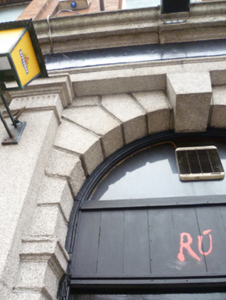Survey Data
Reg No
50010606
Rating
Regional
Categories of Special Interest
Architectural, Artistic, Social
Original Use
Public house
Historical Use
House
In Use As
Public house
Date
1900 - 1920
Coordinates
315247, 234780
Date Recorded
04/11/2011
Date Updated
--/--/--
Description
Corner-sited attached four-storey public house, built c.1910, having arcaded granite shopfront to ground floor, three-bay elevation to northeast and five-bay elevation to northwest. Hipped L-plan slate roof with corbelled brick chimneystacks, behind red brick parapet with moulded lead flashed brick dentil cornice and moulded brick architraves. No visible rainwater goods. Flemish bond red brick walls having recessed panels flanking window bays and to northern corner, having decorative brick course to sill level of second and third floors. Gauged flat-arched window openings with brick reveals and granite sills having moulded brick pediments over first and second floor openings. Replacement single-pane timber sliding sash windows throughout upper floors. Arcaded granite pub front to ground floor comprising engaged capped pilasters, paired to corners, flanking round-headed window and door openings with inset channelled voussoirs, keystones and moulded granite stall risers with chamfered sills to window openings. Pilasters surmounted by entablature comprising granite architrave, recent timber fasciaboard and granite cornice. Round-headed window openings to arcade having fixed timber display windows with flanking granite pilasters to surrounds. Round-headed door opening with double-leaf timber panelled doors with single-pane overlight to northeast elevation, other former door openings now housing fixed display windows over timber battened risers.
Appraisal
This finely proportioned public house occupies a prominent position at the junction of King Street North, Bolton Street and Capel Street. Purpose built as a commercial building in the early twentieth century, it holds an important site at the intersection of these historic streets, terminating the south facing vista of Bolton Street while adding to the variety of the architectural fabric of the north side of the Georgian city of Dublin. It is important, therefore, both in respect of its architectural fabric and for its contribution to the streetscape as a corner sited setpiece.
